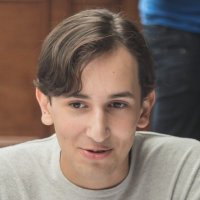
Michael Zhang
@michaelrzhang
PhD student doing machine learning / neural networks research @UofT @VectorInst. Prev: @UCBerkeley.
Journey before destination.
ID: 899756744561246208
https://www.cs.toronto.edu/~michael/ 21-08-2017 22:14:59
422 Tweet
2,2K Followers
493 Following




Inspired by Andrej Karpathy and the idea of using games to compare LLMs, I've built a version of the game Codenames where different models are paired in teams to play the game with each other. Fun to see o3-mini team with R1 against Grok and Gemini! Link and repo below.












Giving your models more time to think before prediction, like via smart decoding, chain-of-thoughts reasoning, latent thoughts, etc, turns out to be quite effective for unblocking the next level of intelligence. New post is here :) “Why we think”: lilianweng.github.io/posts/2025-05-…


Life update: I've recently moved to Boston and started a job Amazon Science ! I'm excited to explore - please share local recs and let me know if you want to grab coffee! (picture: White Mountains, NH)








